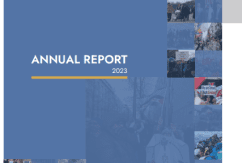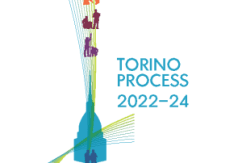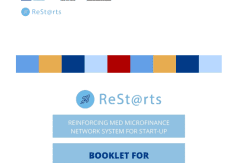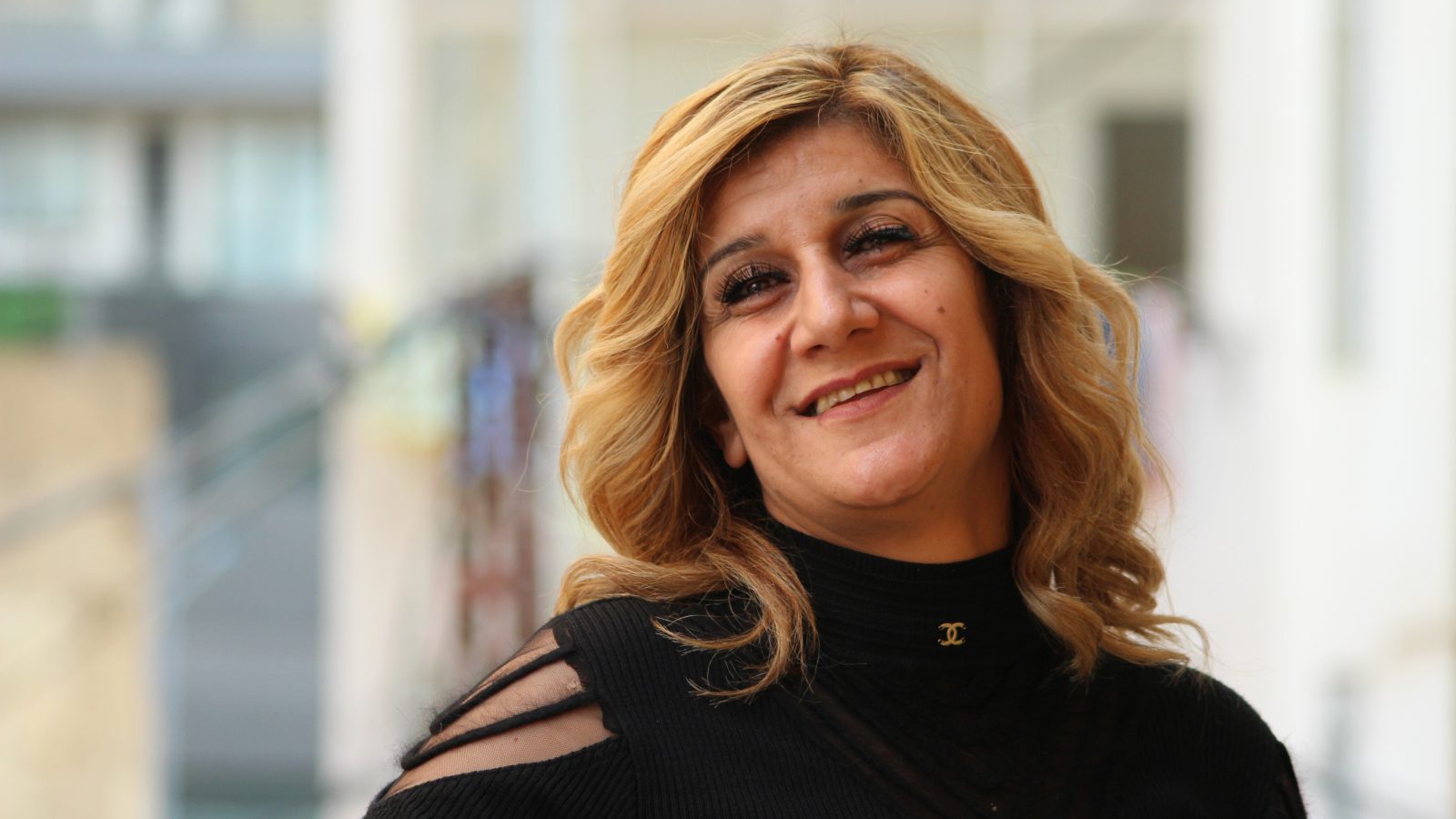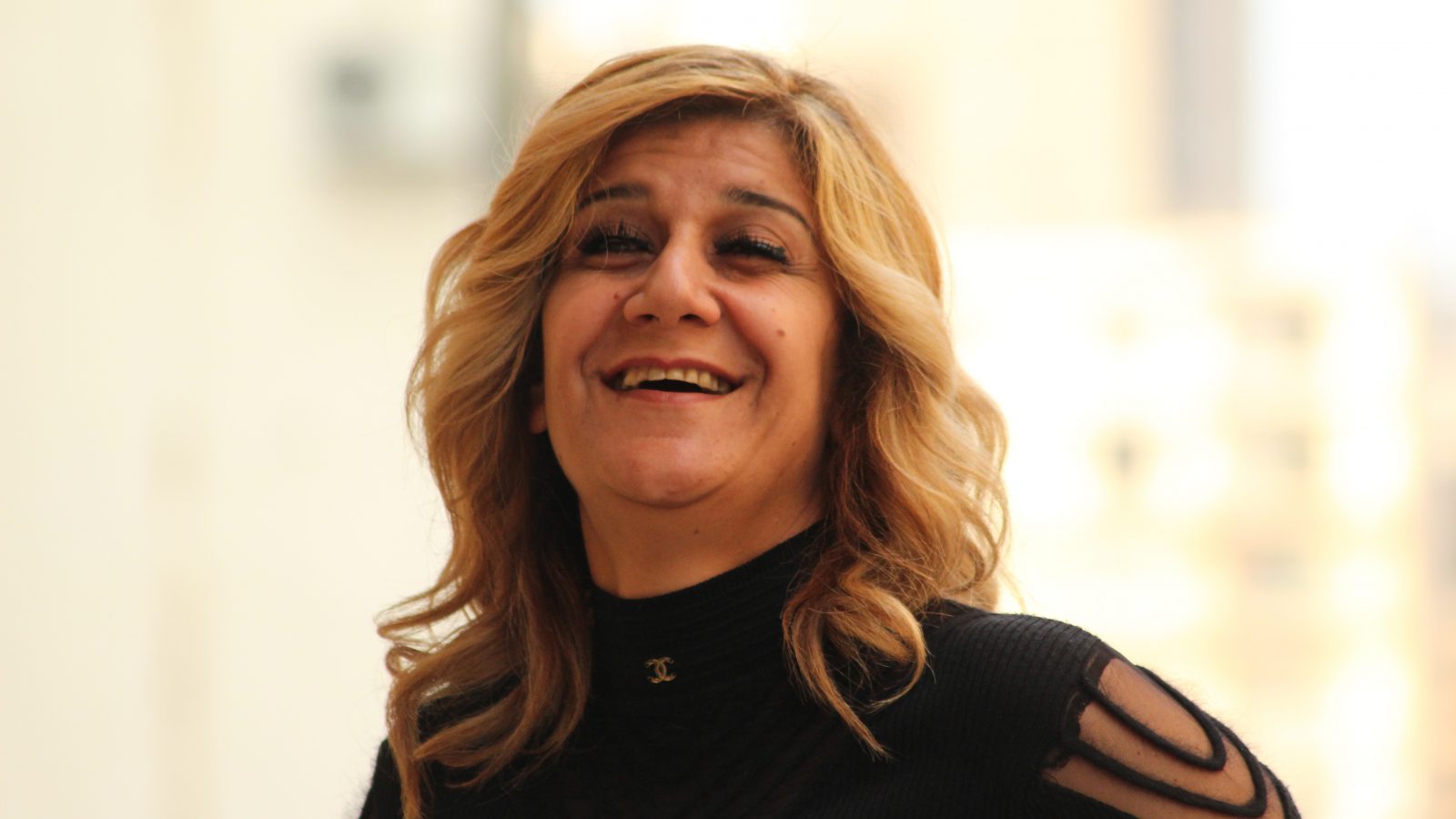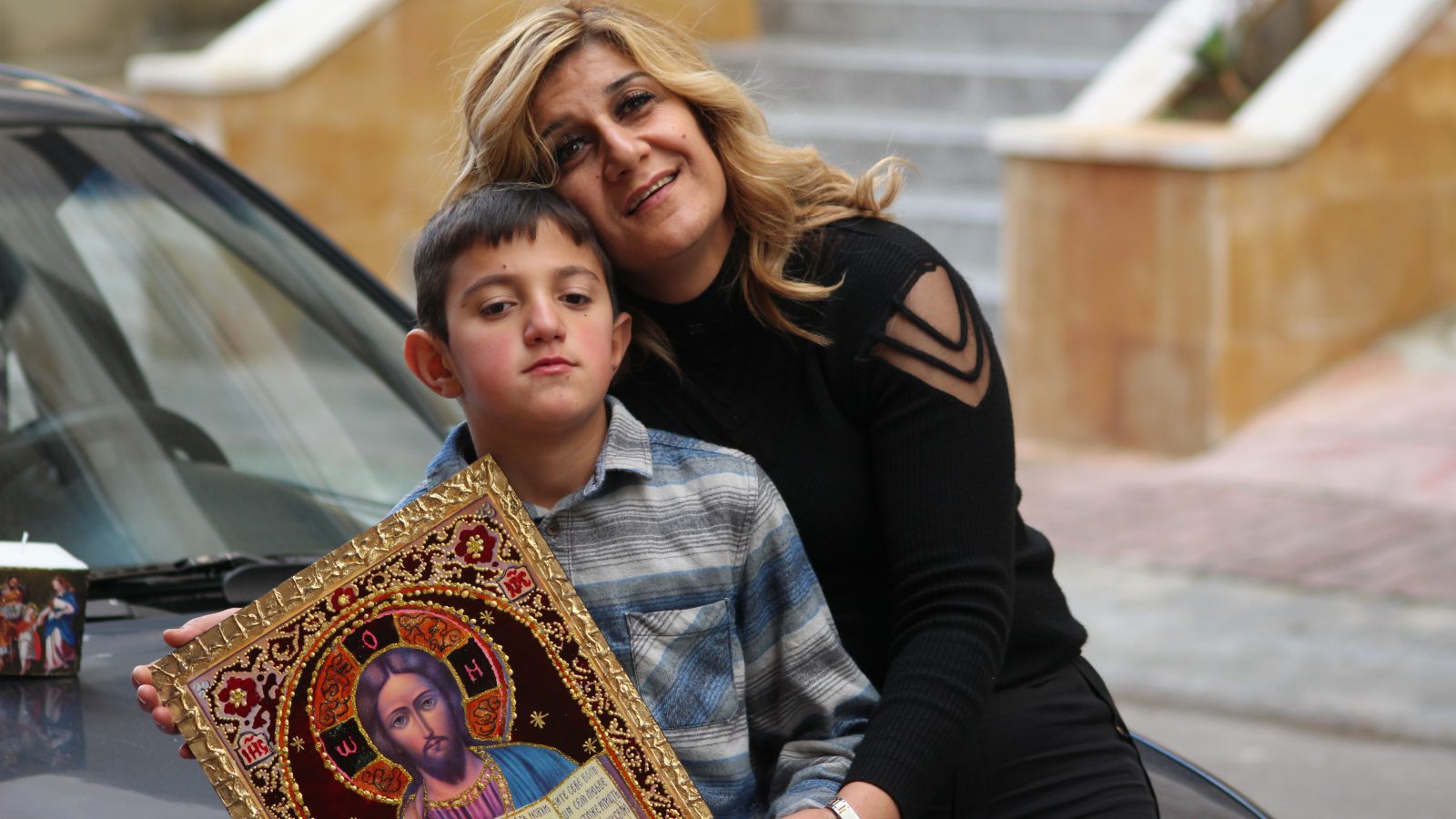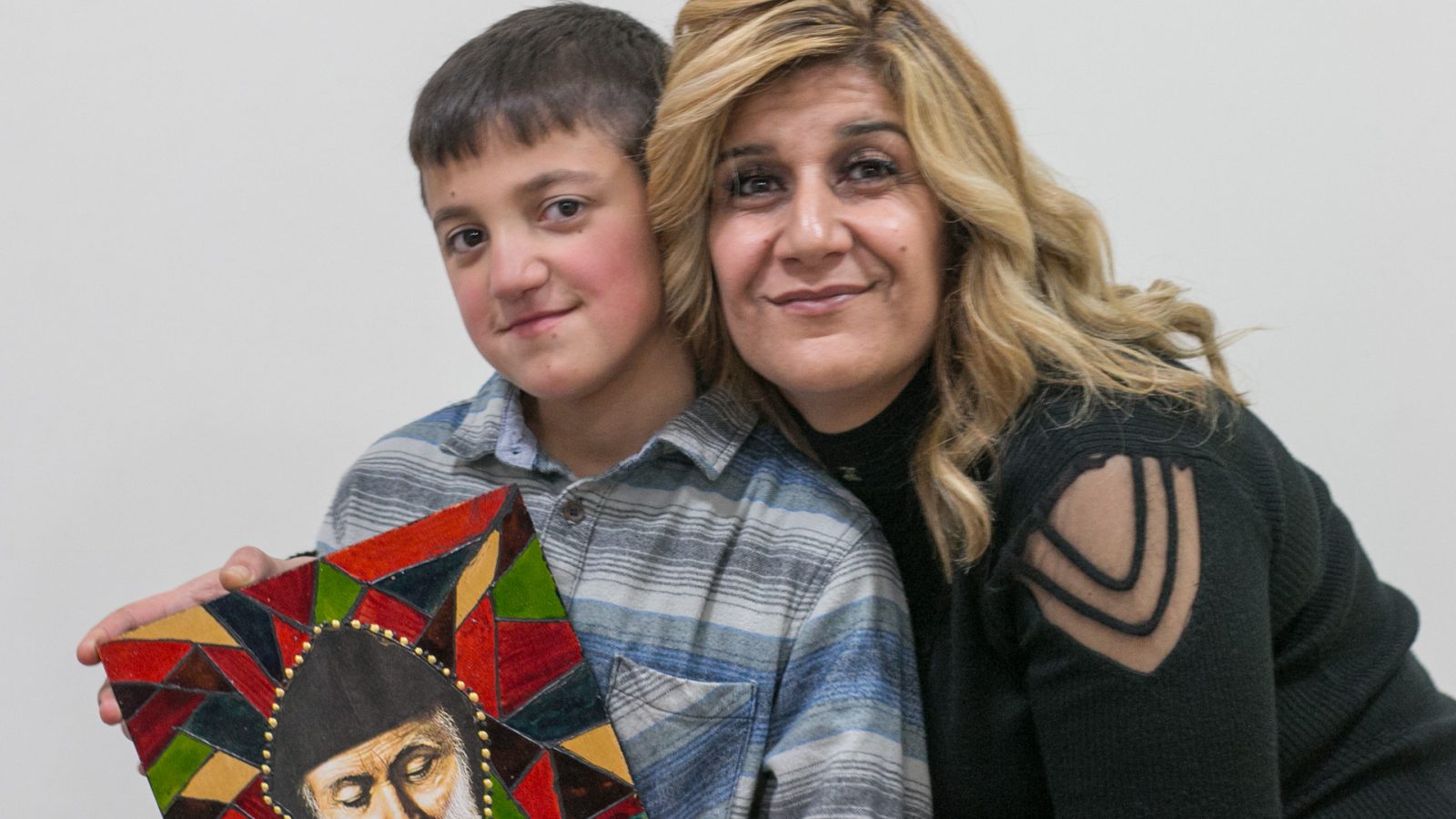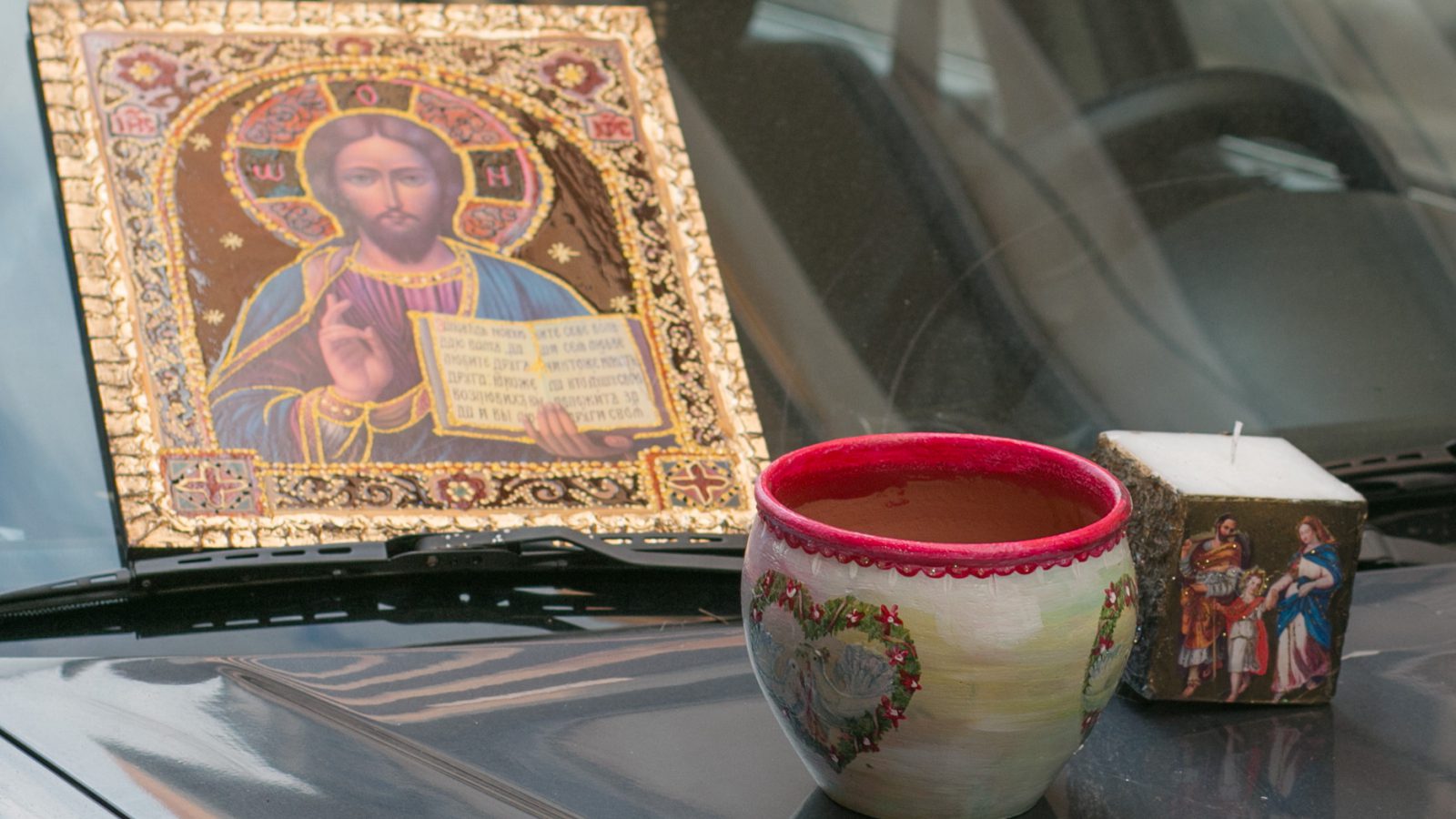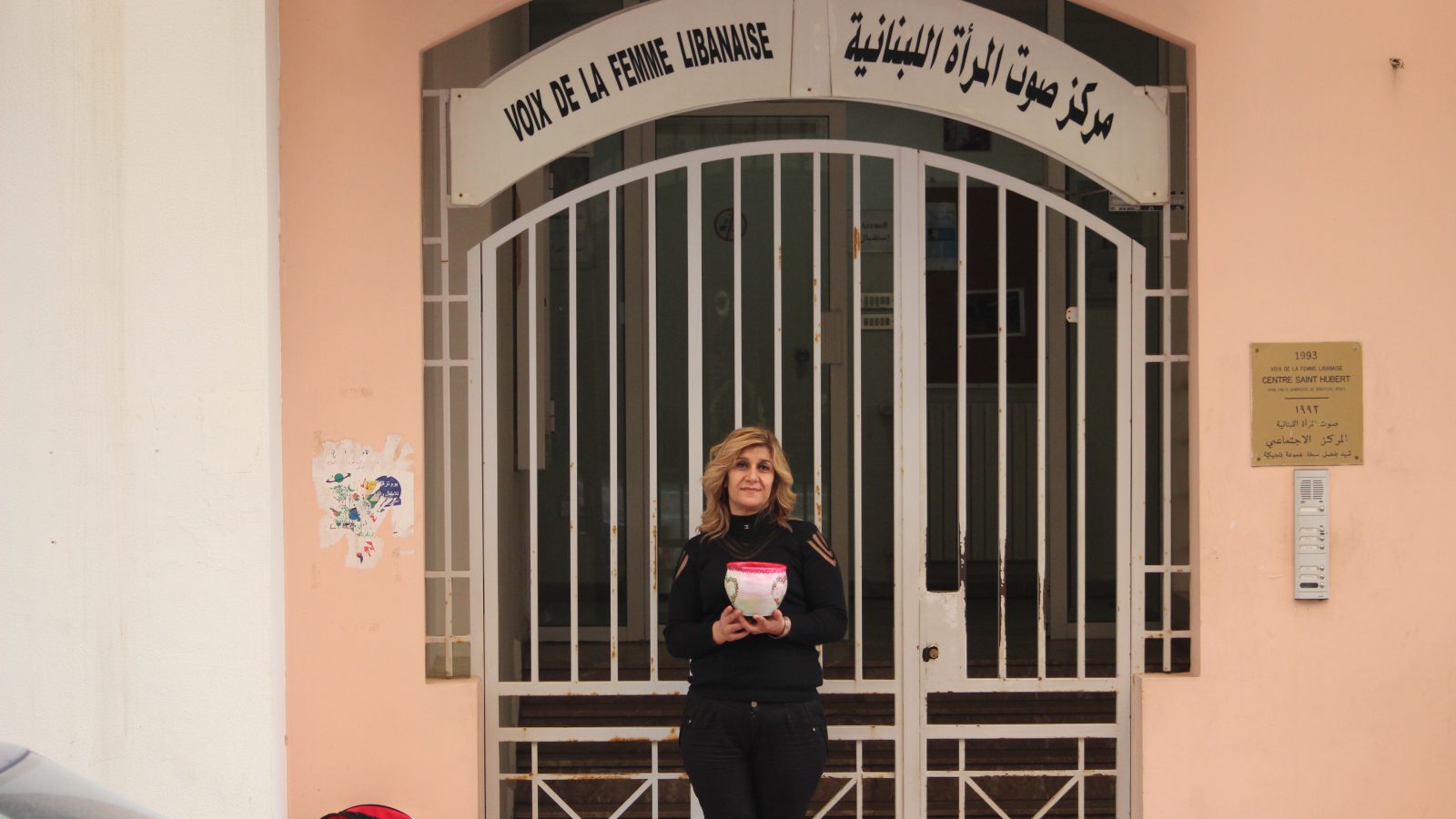The European Union's DAWRIC Project helped me channel my suffering
In Chiyah, Faten Mehri, aged 39, attended the pottery and decoration workshops as part of the DAWRIC project (Direct Action for Women: Reform, Inclusion and Confidence) funded by the European Union to the tune of almost one million Euros. The aim of the project is to strengthen the capabilities of women in Lebanon in order to combat poverty and promote gender equality. While Faten manages to sell her creations and this provides her with a substantial income, she has been raising her two children alone with 500,000 Lebanese pounds a month (290 Euros) since her husband died. This is her story.
When I was at school, I had a teacher who spent all his time insulting us and putting us down. It made me furious because I couldn’t bear it, to the point where one day I decided to quit school and never return. That was just before the junior high school certificate. Thus, starting the age of 13, I remained at home.
I come from a village in South Lebanon. I busied myself as one does in a village: I looked after the garden, the house and sometimes enjoyed a hookah with the neighbours. At the time I didn’t really have a dream. Our parents were of a different mentality and didn’t allow us to imagine that we could accomplish anything in our lives. I was quite bored. When I was 19, a young man from Beirut who used to come and play in football tournaments in our village fell in love with me and asked me to marry him. I told myself that marrying him would be a way of escaping all of that. So, we got married and we moved to Beirut.
We had two sons. Fady, the oldest is now fifteen. Since the age of four he had to start going to a special school because he has a severe form of autism. He can sometimes react violently, get angry when we don’t understand what he is saying, and even strike out. When I gave birth to my second son Loubnan, I quickly looked for a nursery to take him in so he would not be affected too much by his brother’s behaviour. That is how I met Georgette Azar, the director of La Voix de la Femme Libanaise (the Voice of the Lebanese Woman), an NGO which helps families experiencing difficulties, mainly by offering daycare for those in need. Georgette allowed me to place Loubnan in the nursery from the age of two for free because she knew we had difficulties to make ends meet. I wasn’t working, and my husband was a carpenter. Every time there were free activities at the centre, whether it was for us or for children, she would let us know and invite us.
It was within this context that last October she told me about a pottery and decoration workshop which was funded by the European Union and taking place at the centre.
I had just lost my husband to an aggressive cancer, and I needed something to allow me to let off steam and occupy my mind. So, I decided to take part in the activity.
The death of his father affected Fady a lot. He had become very close to him in his final years. His father would change his diapers, take him out, look after him, etc. When he was no longer there, he had more turbulent reactions.
These creative workshops really helped me channel my stress.
We were taught art, woodwork, cardboard work and decoration in order to make pots and pictures. It did me a world of good.
I was able to use my suffering to create something useful. It was a kind of therapy. When I was there, I didn’t think about anything else.
I chose to paint Saint Charbel in many of my pictures because he was the saviour of my son Loubnan.
When he was two years old, Loubnan suffered from a very serious disease which made his belly inflated and the rest of his body very thin. While other children were learning to walk, he couldn’t even get up. The doctors told us he only had a ten percent chance of survival. One evening, my neighbour suggested taking him to visit Saint Charbel and I agreed. The following morning, something extraordinary happened. I heard like an explosion in Loubnan’s tummy. I asked him if he was alright and if he was in pain. He replied that everything was completely fine. A bit later I saw him get up and run around in the kitchen! I then took him to the hospital. The doctor asked me what I had done, because Loubnan had been cured! Ever since then, I have prayed in that church even though I am a Muslim. After all, there is only one God, so it makes no difference whether you are a Muslim or a Christian.
A month ago, I started working for a notary. I give a helping hand at the office getting coffee, housekeeping, that kind of things. Even if I’d wanted to, I could have never worked before, mainly because Fady’s situation made it impossible. Little by little I got used to this new way of life. I painted a picture for my boss as a gift.
My dream is to continue learning, to develop myself from a personal perspective and get a degree.
My dream is to learn English and French. I dream of being able to use a computer. If I had known how to do all of that I would have been able to be a secretary, have social security for myself and my children, a certain degree of security.
Today I live with 500,000 Lebanese pounds per month, and I don’t receive any other help. To make it through, I must make huge personal sacrifices, so I can spare some money for my children, as any mother would do.
I want my children to live like the children of ministers even if we have nothing. Fortunately, we have an old rental property and the owner is sympathetic. I have been unable to pay him for several months, but he still lets us live there. But the question is, for how long? Given my salary, even if I sold just one or two paintings, it would make a huge difference to our daily life.
These workshops have also shown me what I am capable of. They made me realise that if I put my mind to something, I can achieve it.
If one day, for example, I decide to open a shop and sell my creations, I know that I’ll be able to achieve it.
Anyway, despite everything that has happened with my sons and my husband, I keep on laughing and smiling, because God has given me the strength to keep fighting. After all, life is beautiful, so you have to live it!”
Faten Merhi, aged 39, is one of 40 women who participated in the pottery and decoration workshops which take place at the Voice for Lebanese Woman centre in Chiyah, as part of the DAWRIC project (Direct Action for Women: Reform, Inclusion and Confidence) funded by the European Union. “Without the 10,000 Euros granted by the European Union, we would have never been able to train those 40 women,” explains Georgette Azar. “We are an NGO and rely on donors.”
The aim of the DAWRIC project is to strengthen the capabilities of women in Lebanon in order to combat poverty and promote gender equality. The project worth almost one million Euros has been implemented throughout Lebanon (in 21 towns) with some twenty NGOs and associations. A total of 4000 Lebanese women like Faten have benefited from the EU project.
DAWRIC was implemented by the British Council alongside the Maharat Foundation and the Committee for the Follow-Up on Women Issues, CFUWI. It started in September 2016 and finishes this month, in March 2019.
Published in Local Media
EU Neighbours Links
EU Delegation









